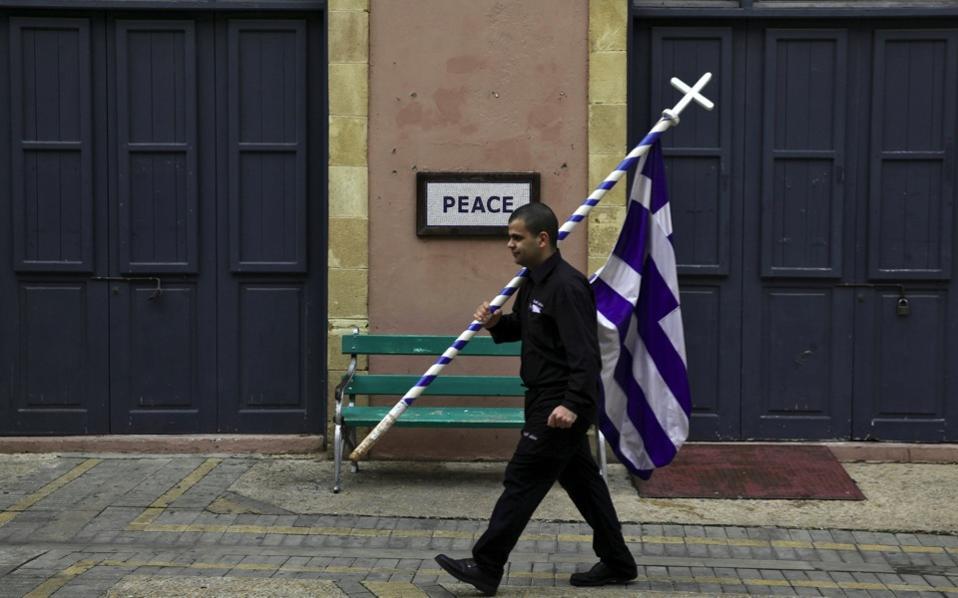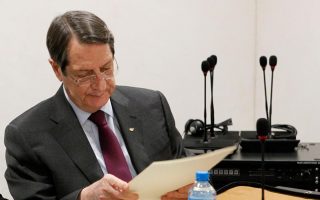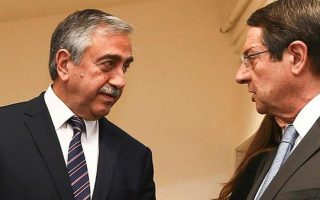Cyprus talks shift to territorial and map trade offs

Leaders of ethnically divided Cyprus were to discuss territorial trade-offs on Wednesday, a crucial juncture in peace talks aiming for a long-elusive reunification deal that may be put to a referendum this year.
For the first time in more than a decade, Greek and Turkish Cypriots plan to submit maps to the United Nations detailing their proposals on territorial boundaries between constituent states in a two-zone federation.
The strategically located island in the eastern Mediterranean was split after a Turkish invasion in 1974 triggered by a brief Greek-inspired coup.
In an effort to break a logjam in the decades-old conflict, Greek Cypriot leader and President Nicos Anastasiades and Turkish Cypriot leader Mustafa Akinci moved the current intensified round of peace talks – which began in 2015 – to Geneva.
Asked if the sides would be submitting maps on Wednesday, Anastasiades said: "I believe so… that's the agreement."
The island's division has kept tension between Greece and Turkey alive and contributed to the hurdles facing Turkey's ambitions of joining the European Union.
Any adjustment would modify the existing ceasefire boundary splitting Cyprus east to west and possibly limit territory under Turkish Cypriot control from about 36 percent to just under 30 percent.
Past peace negotiations have seen Turkish Cypriots propose maintaining a geographical area of 29.2 percent, with Greek Cypriots countering it with 28.2 percent.
"We would want the maximum amount of refugees returning to their homes under Greek Cypriot control," said a Greek Cypriot official engaged in discussions.
The 1974 invasion uprooted 165,000 Greek Cypriots, while about 40,000 Turkish Cypriots were displaced in intercommunal violence in the 1960s and a population transfer in 1975.
Among the talks in Geneva will be a meeting of representatives of Greece, Britain and Turkey on Thursday to discuss security issues that could govern a deal.
The three countries are guarantor powers of Cyprus, permitting intervention to restore constitutional order under a 1960 treaty forced on the former British colony for its independence.
The guarantors are likely to be represented by foreign ministers Boris Johnson of Britain, Mevlut Cavusoglu of Turkey and Nikos Kotzias of Greece.
Turkey has 30,000 troops in northern Cyprus. Their presence will be strongly contested by the Greek side, which says a deal is not possible without them pulling out. [Reuters]





